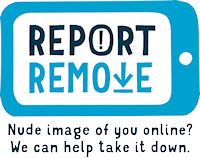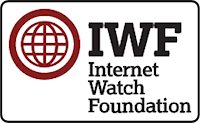Online Safety
Introduction
In school, children are taught Computing and it is used to support learning across the curriculum. The Computing curriculum states that ‘children should be taught to use technology safely, respectfully and responsibly; recognise acceptable/unacceptable behaviour; and identify a range of ways to report concerns about content and contact.’
As outlined in our Online Safety Policy, education will be provided in the following ways at St. Jude’s Catholic Primary School:
- A planned online safety programme will be provided as part of Computing/PSHE/RSE and other lessons and will be regularly revisited – this will cover both the use of ICT and new technologies in and outside school.
- Key online safety messages will be reinforced as part of a planned programme of assemblies and tutorial/pastoral activities.
- Pupils will be taught in all lessons to be critically aware of the materials/content they access on-line and be guided to validate the accuracy of information.
By the end of Key Stage 2, we aim for all pupils to know:
- That for most people the internet is an integral part of life and has many benefits.
- About the benefits of rationing time spent online, the risks of excessive time spent on electronic devices and the impact of positive and negative content online on their own and others’ mental and physical wellbeing.
- How to consider the effect of their online actions on others and know how to recognise and display respectful behaviour online and the importance of keeping personal information private.
- Why social media, some computer games and online gaming, for example, are age restricted.
- That the internet can also be a negative place where online abuse, trolling, bullying and harassment can take place, which can have a negative impact on mental health.
- How to be a discerning consumer of information online including understanding that information, including that from search engines, is ranked, selected and targeted.
- Where and how to report concerns and get support with issues online.
All children are taught how to make effective use of the internet alongside SMART (Safe, Meeting, Accepting, Reliable, Tell) rules to stay safe online. Our ‘Rules for Responsible Use’ are studied in all years, are displayed in prominent places around school and can be seen below:
Useful Websites
- BBC Own It – a place to help you boss your life online.
- Childnet International – for primary children.
- Childnet International – for teachers and professionals.
- Internet Matters – a guide to help you through the many issues children can experience when using the internet.
- Internet Watch Foundation – the UK Hotline for reporting criminal online content.
- Meta (Facebook) Safety Centre – guides to Facebook settings.
- NSPCC: Keeping Children Safe Online – support for parents and carers from the NSPCC.
- Report Online Terrorist Material (gov.uk) – report illegal terrorist information, pictures or videos you’ve found on the internet. Your report will be treated anonymously.
- UK Safer Internet Centre: Parental Controls – how to set up parental controls offered by your home ISP.
Useful Documents
- Online Safety Guide for Parents
- Facebook Checklist
- How to set up Facebook Privacy Controls
- How to set up Parental Controls on the Xbox 360 (Microsoft)
- How to set up Google Safe Search
- How to set up YouTube Safety Mode
- Inspecting E-Safety in Schools (Ofsted)
- Keeping up with Children on the Internet (Childnet International)
- Online Gaming: An Introduction for Parents and Carers (Childnet International)






